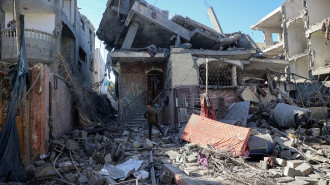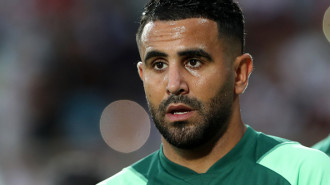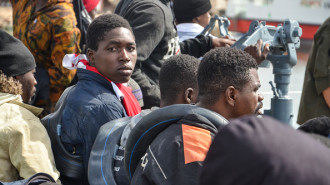Yemen truce fragile as rebels threaten Saudi Arabia
A ceasefire in Yemen that has been frequently violated is due to be extended on Monday night, as fighting persisted in the north and rebels vowed more missile attacks on Saudi targets.
The truce was set to be renewed for one week, a day after the Saudi-backed government and the Houthi rebels wrapped up peace talks in Switzerland without any breakthrough.
The six days of closed-door meetings were strained by repeated violations of a coinciding ceasefire aimed at calming tensions between loyalists and the rebels who control Sanaa.
On Monday, clashes continued in the north of Yemen, while there was a lull in fighting in the south, even outside third city Taez which is under rebel siege, pro-government forces said.
Ten rebels were killed as loyalists pressed their offensive in Nihm, 40 kilometres (25 miles) outside the capital, they said.
Loyalists also advanced towards the Saudi border post of Baqa in northern Jawf province.
The Saudi-led coalition that has backed the loyalists since March bombed rebel positions in Khawlan, east of Sanaa, witnesses said.
A halt to the violence is sorely needed in the Arabian Peninsula's poorest nation, where the UN says fighting since March has killed thousands of people and left about 80 percent of the population needing humanitarian aid.
UN special envoy Ismail Ould Cheikh Ahmed announced in Bern on Sunday that a new round of talks would be held on January 14 at a location yet to be disclosed.
The conflict has escalated dramatically since Saudi-led airstrikes began in March, with more than 5,800 people killed and 27,000 wounded since then, according to UN figures.
The Houthis seized Sanaa last year and then advanced south to the second city of Aden, forcing President Abedrabbo Mansour Hadi to flee to Saudi Arabia in March.
Saudis intercept missile
Following territorial gains by loyalist troops backed by the coalition, Hadi returned to Aden in November after six months in exile in the neighbouring oil-rich kingdom.
Before dawn on Monday, Saudi Arabia intercepted a missile fired from Yemen into the kingdom's southern Jazan district, the coalition said, after a missile killed three civilians two days earlier.
"Air forces immediately destroyed the launch pad inside Yemen," the coalition said.
The Saudis have also deployed Patriot missile batteries designed to counter tactical ballistic missiles.
Clashes have been common along the border with Saudi Arabia, where rebel strikes have killed more than 80 people since March.
Monday's attack came a day after a spokesman for forces allied to the Houthis vowed to intensify missile attacks on Saudi targets.
Brigadier General Sharaf Luqman said "300 Saudi military and vital targets" had been chosen.
The rebels and their allies still have "about 60 to 70 missiles, including Tochka missiles", Yemeni army sources say, despite coalition claims to have neutralised their ballistic capabilities.
The Houthis' political bureau hailed "the missile strikes that inflicted unprecedented losses on the enemy", and criticised the United Nations for "not being serious in its efforts to end the aggression".
Arab diplomats noted "international pressure" to end the fighting in Yemen.
"Permanent members of the UN Security Council, including the United States, are pressing all warring parties in Yemen to end hostilities," one said.
"Washington has led intense contact with countries of the Arab coalition, including Saudi Arabia and the United Arab Emirates, to support a permanent ceasefire in Yemen," another diplomat said.
An Iranian spokesman said on Monday that diplomatic efforts were under way to open "direct dialogue" between rivals Tehran and Riyadh to resolve regional issues, including the Yemen conflict.







 Follow the Middle East's top stories in English at The New Arab on Google News
Follow the Middle East's top stories in English at The New Arab on Google News


